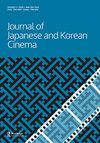档案、数字技术和光州起义的传承——《金郡》(2019)和《一圈一圈》(2020)中后光州一代导演的影响
引用次数: 0
摘要
本文探讨了最近两部关于光州起义的纪录片:姜相宇的《金根》(2019年,金根)和张敏升的《圆与圆》(2020年,Dunggeulgo dunggeulge)。光州起义是1980年发生在韩国光州的民主运动。韩国政府为了应对起义,下令警察和士兵屠杀光州平民。在起义期间拍摄的一张照片中,金根开始寻找一名驻扎在卡车机枪前的年轻人的身份。韩国电影资料馆委托制作的《圆与圆》是为纪念6•25起义40周年,于2020年制作的视听实验作品。在这篇文章中,我论证了纪录片导演Kang和Jang——他们属于后光州一代,没有直接或间接地参与、见证或经历过起义——找到了一种重新连接和继承起义的历史记忆的方法,通过诉诸情感和感官,而不是简单地叙述历史事实和解释起义的意义,将过去带到现在。本文章由计算机程序翻译,如有差异,请以英文原文为准。
Archive, digital technology, and the inheritance of the Gwangju Uprising: the affect of the post-Gwangju generation of directors in Kim-gun (2019) and Round and Around (2020)
ABSTRACT This essay explores two recent documentaries on the Gwangju Uprising: Kang Sang-woo’s Kim-gun (Gim-gun, 2019) and Jang Min-seung’s Round and Around (Dunggeulgo dunggeulge, 2020). The Gwangju Uprising was a pro-democracy uprising that occurred in Gwangju, South Korea in 1980. In response to the uprising, the South Korean government ordered police and soldiers to massacre Gwangju civilians. Kim-gun sets out in search of the identity of a young man stationed in front of a truck-mounted machine gun in a photograph taken during the uprising. Round and Around, commissioned by the Korean Film Archive, is an audio-visual experimental project that was produced in 2020 to commemorate the 40th anniversary of the uprising. In this essay, I demonstrate that documentary directors Kang and Jang – who belong to the post-Gwangju generation and did not participate in, witness, or live through the uprising either directly or indirectly – find a way to reconnect with and inherit the historical memory of the uprising and bring the past to the present by appealing to affect and the senses rather than simply recounting historical facts and explicating the significance of the uprising.
求助全文
通过发布文献求助,成功后即可免费获取论文全文。
去求助
来源期刊

Journal of Japanese and Korean Cinema
Arts and Humanities-Visual Arts and Performing Arts
CiteScore
0.60
自引率
0.00%
发文量
16
期刊介绍:
Journal of Japanese and Korean Cinema is a fully refereed forum for the dissemination of scholarly work devoted to the cinemas of Japan and Korea and the interactions and relations between them. The increasingly transnational status of Japanese and Korean cinema underlines the need to deepen our understanding of this ever more globalized film-making region. Journal of Japanese and Korean Cinema is a peer-reviewed journal. The peer review process is double blind. Detailed Instructions for Authors can be found here.
 求助内容:
求助内容: 应助结果提醒方式:
应助结果提醒方式:


